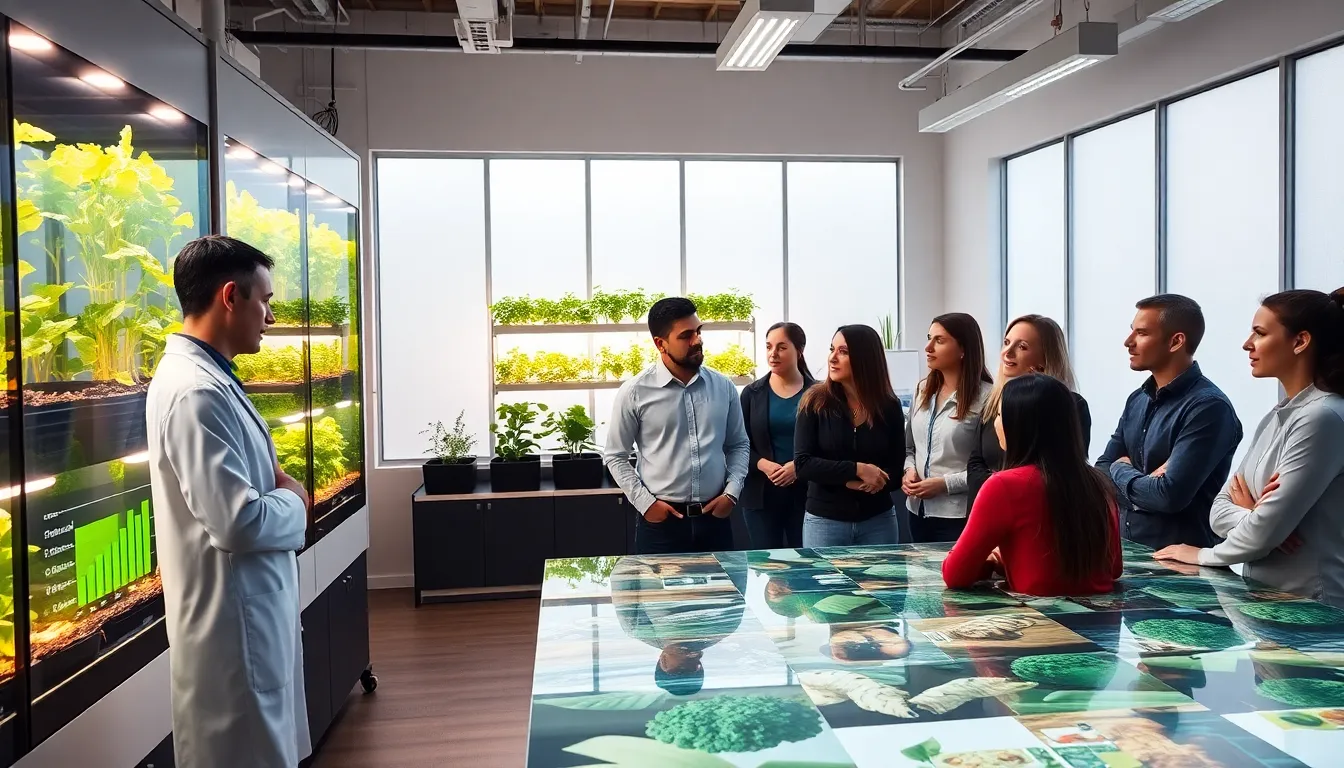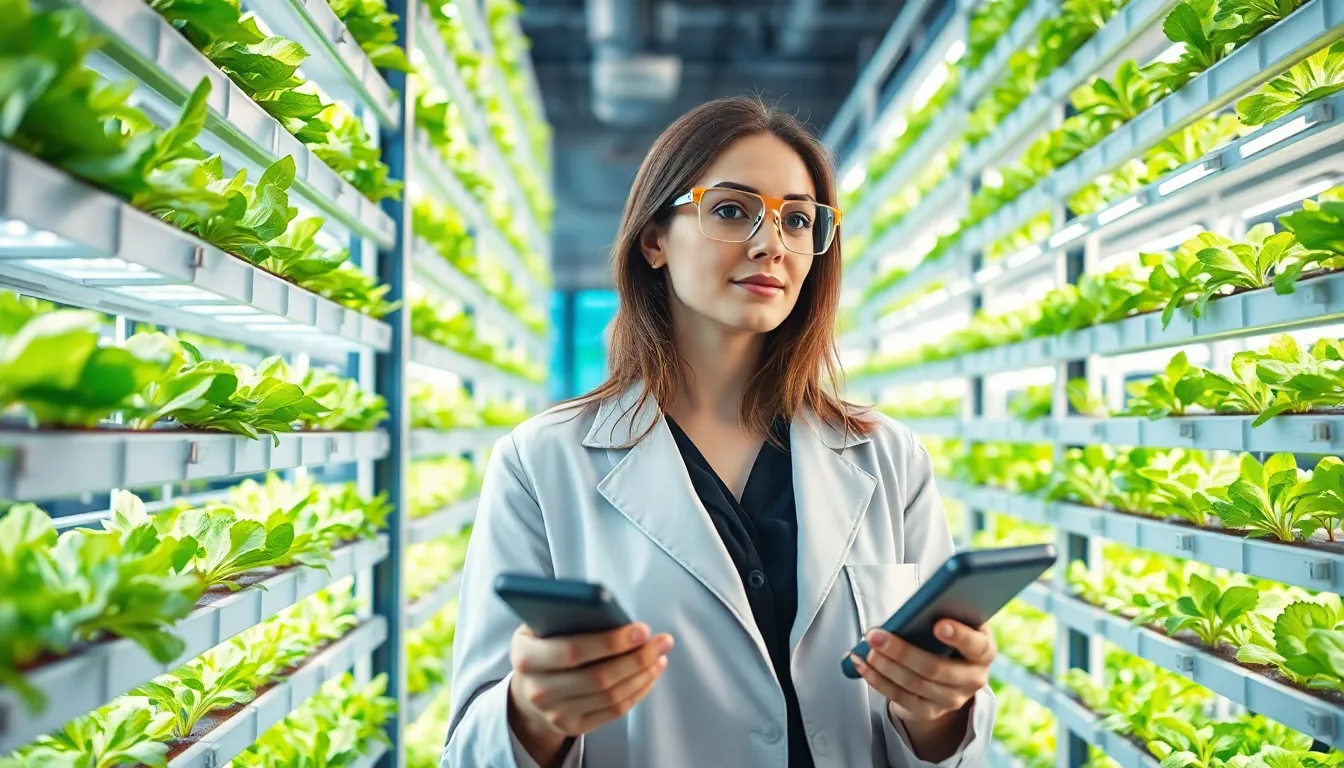Imagine a world where your dinner not only tastes good but also does good for the planet. That’s the promise of sustainable food technology. As we face mounting challenges in food production, innovative solutions are emerging that blend cutting-edge science with environmental responsibility. Hold onto your forks: this isn’t just a food trend: it’s a revolution. Let’s jump into the intriguing and essential realm of sustainable food technology, where vegetables are grown with precision and waste is a thing of the past.
Table of Contents
ToggleUnderstanding Sustainable Food Technology

Sustainable food technology refers to the use of innovative methods and systems designed to produce food that meets present needs without compromising the ability of future generations to meet theirs. It encompasses every aspect of food systems, including production, processing, distribution, and consumption. Here, the focus is on utilizing resources efficiently while minimizing harm to the environment. From precision agriculture to vertical farming, sustainable food technology seeks to optimize practices, reduce waste, and ensure that the food production process is not only productive but sustainable.
The Importance of Sustainability in Food Systems
As the global population continues to rise, challenges concerning food security and environmental degradation are becoming increasingly evident. Modern agriculture often relies on methods that can lead to depletion of natural resources, biodiversity loss, and higher greenhouse gas emissions. Hence, emphasizing sustainability in food systems is not just beneficial, it’s crucial. Sustainable practices help preserve ecosystems while ensuring that communities continue to have access to nutritious food. This balance is essential for maintaining a healthy population and a thriving planet. Addressing sustainability also fosters economic growth, as it creates new jobs and stimulates innovation.
Innovative Approaches in Sustainable Food Technology
The culinary landscape is witnessing a transformation thanks to groundbreaking technologies designed to enhance sustainability. Here are a few key innovations making waves:
Key Technologies Transforming Food Production
- Aquaponics: This integrated system fuses aquaculture (raising fish) with hydroponics (growing plants in water). Waste produced by fish provides organic nutrients for the plants, while the plants help filter and purify the water, creating a sustainable ecosystem.
- Vertical Farming: By stacking layers of crops in a controlled environment, vertical farming maximizes space and resources. LED lighting and climate control work together to reduce water usage and increase yield.
- Precision Agriculture: This data-driven approach uses technology such as satellites and drones to monitor crop health and optimize inputs like water and fertilizer. By applying only what is necessary, farmers can reduce waste while increasing productivity.
- Cultured Meat: Also known as lab-grown meat, this revolutionary technology involves growing meat cells in a lab environment. It offers an alternative to traditional livestock farming, significantly reducing land use, water consumption, and emissions.
- Food Waste Reduction Technologies: Innovations in packaging, storage, and processing aim to minimize waste at every stage. From compostable packaging to smart storage solutions, these technologies make a substantial impact on cutting down food waste.
Challenges in Implementing Sustainable Food Technologies
Even though the promising future of sustainable food technology, various challenges stand in the way of widespread adoption. First and foremost, the transition from conventional practices requires significant investment in new technologies and infrastructure. Many farmers, particularly smallholders, may lack the resources to make this switch. Besides, regulatory hurdles can impede innovation and slow down the implementation of groundbreaking technologies.
Consumer acceptance also plays a critical role. Many individuals are still hesitant about new food technologies, especially when it involves genetically modified organisms (GMOs) or lab-grown products. Educating the public on the benefits of sustainable practices is essential for fostering acceptance. Finally, the scalability of novel techniques poses a challenge. Innovations that work well on a small scale may not necessarily perform effectively on a broader level.
Future Trends in Sustainable Food Technology
Looking ahead, several trends are anticipated to shape the future of sustainable food technology. Collaboration will be key. As stakeholders from various sectors come together, innovative partnerships can help the sharing of knowledge and resources. Also, advancements in artificial intelligence and machine learning will enhance precision agriculture, helping to further refine growing conditions and reduce waste.
Consumer demand for transparency in food sourcing and production will lead to increased use of traceable supply chains. Blockchain technology is likely to play a pivotal role in ensuring food safety and ethical sourcing.
Also, as societal attitudes shift toward more plant-based diets, innovations around alternative proteins will accelerate. This shift may not only reduce reliance on traditional livestock but also mitigate environmental impacts associated with animal farming.



